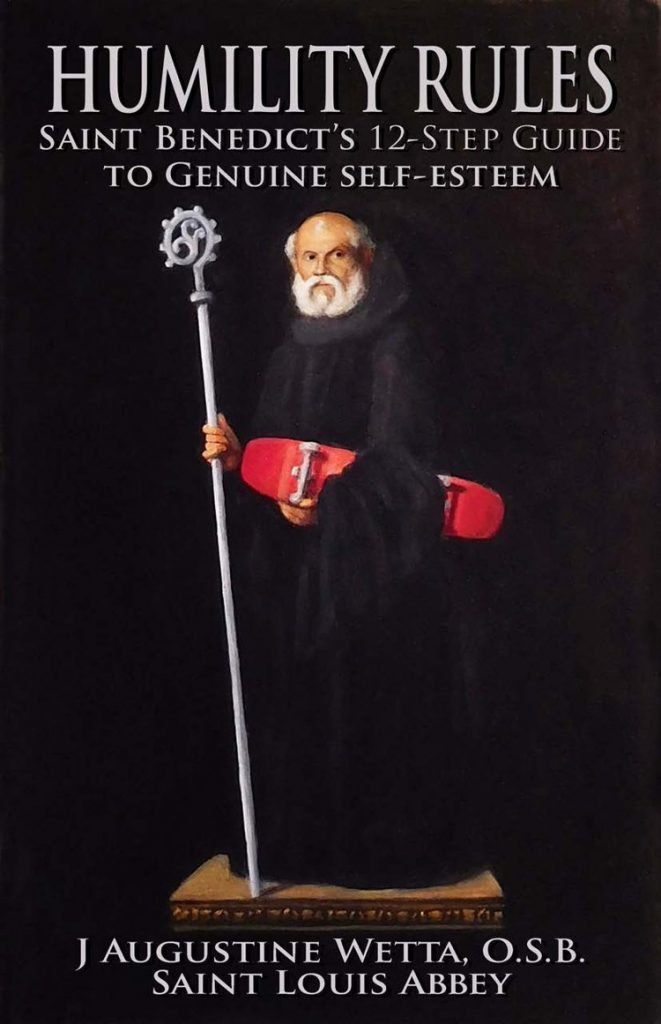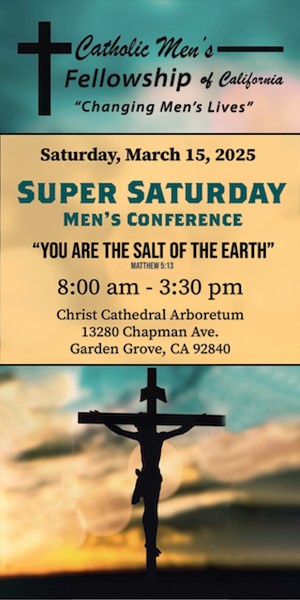“Full disclosure: I don’t believe in self-esteem,” says Father Augustine Wetta, a monk of St. Louis Abbey. As the director of chaplaincy at St. Louis Priory School, where he also teaches and coaches rugby, Wetta sees a lot of teens whose heads have been filled with cliches designed to build self-esteem, such as “Follow your dreams” and “You’re perfect just the way you are.”
“This sort of empty nonsense is likely to turn our teenagers into empty-headed narcissists rather than self-confident achievers,” Wetta said. In his book “Humility Rules: St. Benedict’s Twelve-Step Guide to Genuine Self-Esteem” (Ignatius Press, $15), he’s out to set things straight for kids who are trying to live the Gospel.
Kris McGregor: This book wouldn’t be Benedictine if it didn’t have illuminated manuscripts, but you put a particular spin on each picture.
Father Augustine Wetta: My mother is kind of a famous artist, so if there were bad art in the book, I’d never live it down. One of the kids taught me how to use Photoshop, so I went through old manuscripts and illustrations and Photoshopped little skateboards and iPods into the pictures to make it a little more accessible.
McGregor: Why is humility so important?
Father Wetta: We live in such a tumultuous world, and it seems more and more aggressive and outrageous by the day. But if you’re grounded, if you know who you are, it’s rather easy to encounter that world.
I teach a junior class on sexual ethics, and on the last day, they asked me why I taught it, because the class is rough sometimes. But I told them the image I had: the Church is like this mountain, and the kids are all flying around in this kind of tornado of influences, and I feel sometimes like I’ve got one hand on the mountain, and I’m trying to grab kids and pull them in. That’s what it’s all about, finding that rock — the Rock.
McGregor: Can you explain the steps up the ladder that you use in your book?
Father Wetta: St. Benedict talks about his rule as a “little rule for beginners.” Originally, my book was written for kids, but it’s had even more success with adults.
The ladder itself, Benedict says, is the same ladder they talk about the angels ascending and descending. He says that the higher you climb on this ladder, the lower you get. Each step is a way of littling yourself, but also getting higher and closer to God.
If you listen to some of the saints, like Teresa of Ávila, she talks about how awful she is, and you think — No, you’re not, you’re a saint! But the closer you get to God, the less holy you feel.
McGregor: At the beginning of the book, you have a rung about having a fear of God. Not just for teens, but their parents and everyone in the world, there’s a great fear. You can’t even go to school now and not be afraid. When we hear the term “fear of God,” can we connect it with that kind of fear?
Father Wetta: It’s not as though God is out to get us. He’s not sitting in heaven, ready to hit that smite button. I don’t think being afraid of God is the goal, or even a high step. But it’s somewhere to start. Hell is what we fear, or God’s justice.
One of the old monks told me, if you don’t know where you’re going, at least it helps to know where you want to avoid. So that fear of hell or fear of judgment is a good start. The goal is a perfect love that drives out fear.
McGregor: What about the rung of self-denial? That’s so countercultural, because the world’s goal is to be able to get as much as you want.
Father Wetta: We love to follow the rules so long as they don’t really challenge us. But self-denial is what keeps us grounded. It frees us from being slaves to our appetites.
My friend had an opportunity to be a famous artist. She was friends with Andy Warhol, and part of his scene, and she left it to teach herself how to draw again. As a result, her career kind of tanked for a while, but she said — and I’ve carried this with me all my life — “I would have been a fool to sacrifice joy for the sake of fun.”
McGregor: Near the top of the ladder is prudence, and that’s discernment too, isn’t it? It’s knowing that just because you can doesn’t mean you should.
Father Wetta: I think we’re becoming perpetual teenagers: Let’s break the rules and see what happens. I tell my students if you want to really be rebellious, if you want to go against the tide and cause a stir, be obedient. Tell people you’re Catholic. Do what your religion dictates.
Kris McGregor is the founder of Discerninghearts.com.
SPECIAL OFFER! 44 issues of Angelus for just $9.95! Get the finest in Catholic journalism with first-rate analysis of the events and trends shaping the Church and the world, plus the practical advice from the world’s best spiritual writers on prayer and Catholic living, along with great features about Catholic life in Los Angeles. Subscribe now!

